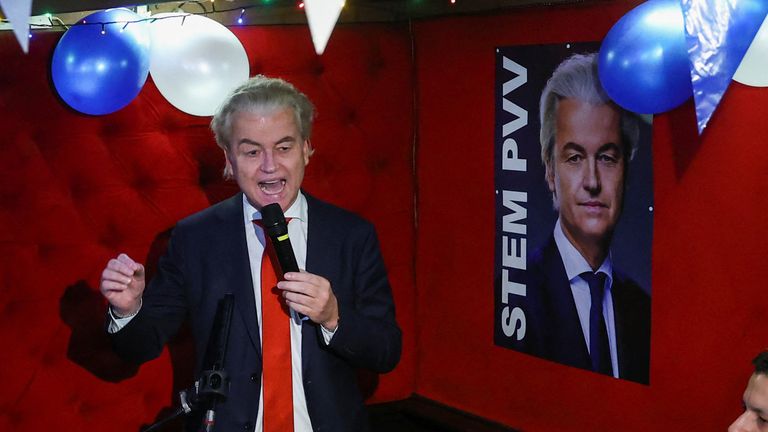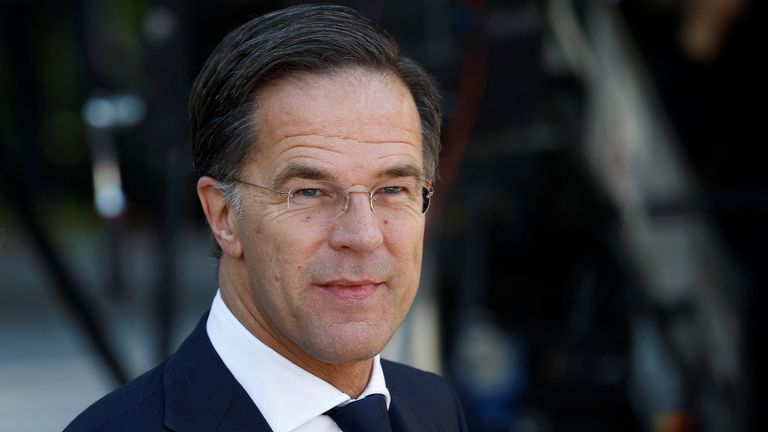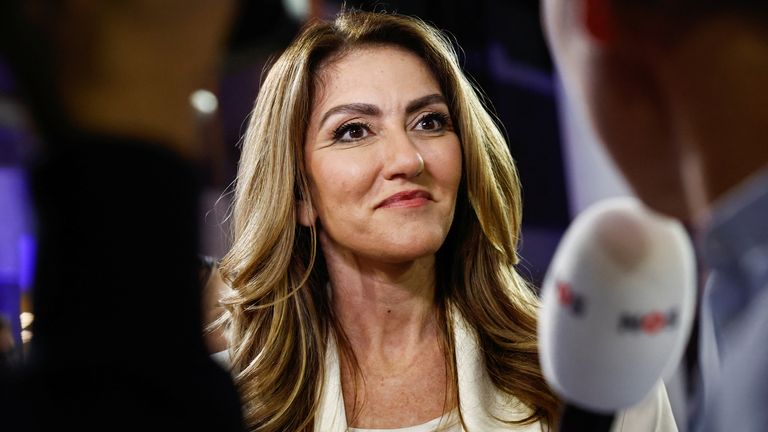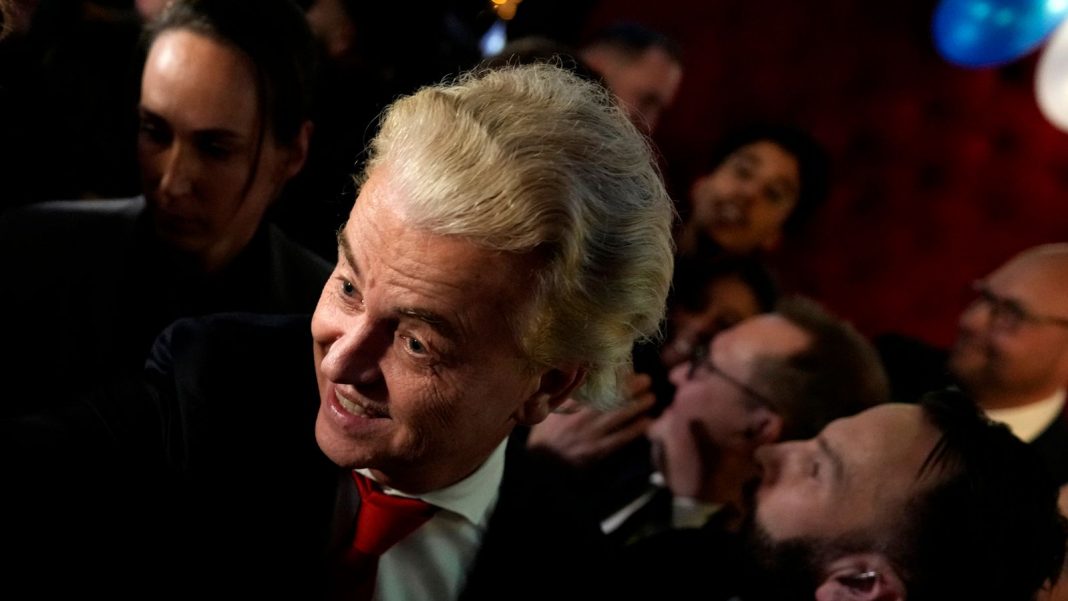Geert Wilders, one of Europe’s most prominent, controversial and inflammatory populist politicians, is heading for victory in the Dutch general election.
Mr Wilders, leader of the Freedom Party (PVV), is predicted to win 35 seats in the 150-seat Dutch parliament – the best result in a political career that spans decades largely spent berating Islam and mainstream politicians.
“The PVV can no longer be ignored,” he said in the wake of victory. “We will govern.”
The left-wing coalition led by Frans Timmermans is predicted to come second with 25 seats while the VVD, which has led the government for the past 13 years under the leadership of outgoing prime minister Mark Rutte, had a dismal night, falling to third place with a predicted haul of 24 seats.
“That was a catastrophic disaster,” one member told me.
The election marked a remarkable turnaround from the last poll, two years ago.
Then, Mr Wilders’ PVV won only 17 seats, while the VVD took 34. Since then, Mr Rutte’s coalition government collapsed after a row over migration policy, while Mr Wilders’ popularity has risen gradually.
And yet, while everyone expected Mr Wilders to do well in this election; very few people expected him to win it.
For so long, he has been the flamboyant, inflammatory, divisive extremist on the fringes of power. Now, Mr Wilders is a winner.
The man who has long derided mainstream politics as the preserve of a self-serving elite – is now cast as the most popular leader in a national election.
He celebrated his success in an unassuming bar near the middle of The Hague, watched by the armed police who, for many years, have had to protect him in the face of regular death threats.

An inflammatory and divisive career
Over the course of his career, Mr Wilders has compared the Koran to Mein Kampf, been arrested several times for incitement, demanded the end of building mosques in the Netherlands and demanded an end to accepting refugees, as well as strict limits on the number of foreign students.
He also proposes a referendum on withdrawal from the European Union, wants to ban people from holding dual nationality and plans to retract any apologies for slavery.
It is, by any standards, an uncompromising slate, although Mr Wilders has recently talked about taking a more measured approach to help form a coalition.
Not many are convinced that, after three decades of uncompromising rhetoric, he really can go soft now.
It is very unlikely Wilders will become prime minister
So could he really end up as the Dutch prime minister?
The answer is yes, in theory, but in reality – it’s very unlikely. He is simply too toxic in the minds of too many people.
Instead we are now bound for a long, protracted and complicated negotiation to see who will actually end up running the country. Or, for that matter, whether the Netherlands is destined for another election.
Already, there are a host of credible theories about what happens next.
One has Mr Wilders striking a coalition deal with the VVD and the newly-formed New Social Contract party, which didn’t exist a few months ago but is now projected to get 20 seats. And if they won’t accept Mr Wilders as prime minister, he could nominate a replacement from his party to take the job instead.
Read more world news:
WHO seeks answers from China about mystery outbreak of respiratory illness
Israel-Hamas hostage-for-prisoner swap and truce ‘delayed’

Dutch Prime Minister Mark Rutte
Wilders could be ostracised
But would the VVD really accept being a junior partner to Mr Wilders – the very man Mr Rutte repeatedly refused to deal with?
His replacement as party leader, Dilan Yesilgoz-Zegerius, opened the door to working together, which some in her party now consider a terrible strategic mistake – legitimising him and, so it’s said, giving some right-wing voters the incentive to transfer their allegiance.

Dilan Yesilgoz-Zegerius, leader of VVD
“I will not be part of anything that leads to Wilders being prime minister,” said one prominent VVD member in the wake of their defeat. “If that happens, I’ll be resigning my membership.”
Another theory is the VVD will enter coalition talks simply to draw them out, only to eventually allow them to collapse and force another election, hopeful that Mr Wilders’ light had faded.
Then there’s the idea Mr Wilders is ostracised by everyone else, easing the way for Mr Timmermans to put together a left-wing coalition.
The permutations go on. There are 21 parties in the parliament, and each is part of the conversation. Coalition is a way of life in the Netherlands and the talks could go on for months – possibly many months.







